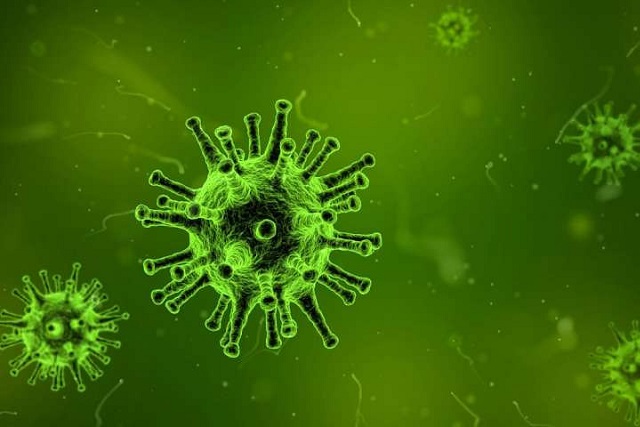Managing Coronavirus Anxiety
By: Rochelle Perper, Ph.D. | March 5, 2020

“Fear about the coronavirus has gripped the world. While this new illness certainly is frightening and needs attention, it’s important to note that far more people die from an illness that is all too familiar: the seasonal flu. An estimated 10,000 people have died from flu this year in the U.S. according to the Centers for Disease Control, and 19 million have become sickened.”*
So, why are we so afraid of this novel coronavirus when we are much more likely to catch the flu? And, how can we manage our anxiety about it?
Fostering Fear
The social sciences have observed for quite some time that we live in a fear-based society. The term “culture of fear” refers to the prevalence of fear and anxiety in public discourse that exudes from news media and other outlets. The way we consume this information and underlying message can negatively affect our actions and the ways we relate to one another.
“Nothing in life is to be feared, it is only to be understood.
Now is the time to understand more, so that we may fear less.”
-Marie Curie
It is human nature to fear what is unknown. We fear the risks that we know exist far less than the ones we know little about. Since we know less about this novel virus compared to old viruses, it is unfamiliar and thus more anxiety-provoking than the more significant risks we face every day – from driving to work in the morning to texting while crossing the road. Because these risks are familiar, we fear them far less. It isn’t inherently wrong to fear what is unknown. Rather, we need to learn how to keep this fear in perspective and use our fear as a motivator to learn more.
News about the coronavirus outbreak in China, and speculation that it could spread, is certainly worrisome and not unwarranted. It is a natural response to a threat about which we know little. Know that you are not alone if you experience anxiety about it.
Ways to Manage Coronavirus Anxiety
1. Consume news only from trusted sources
Find reputable sources of information like the Centers for Disease Control and Prevention or the World Health Organization and stick to them to source reliable, professional information you can act on. Be selective about where you receive your information; it will help you avoid misinformation and protect you from irresponsible, fear-based media that use coronavirus news to exploit, create chaos, and instigate irrational worry. For more information, read the following article from Harvard Health (February 27, 2020): Be careful where you get you get your news about coronavirus.
2. Keep things in perspective
Remember that the number of confirmed cases of coronavirus in the U.S. is extremely low, especially compared to the usual viral flus of the season. That a great deal of news occurs on this issue does not necessarily mean that it presents a great deal of threat to you or your family.
3. Utilize positive coping strategies
Now more than ever is it important to find healthy outlets to reduce stress. Examples of positive coping skills include meditation and mindfulness practices, exercise, music, talking with friends and family, laughing, spending time in nature and taking breaks away from media and technology. Practicing gratitude reduces stress significantly and improves overall functioning.
4. Keep healthy
Let’s face it: A lot in life is outside of our control. Bringing attention to what is within our control is what helps, especially in times of uncertainty and unpredictability. This includes our ability to problem-solve, utilize our resources, and think intelligently about issues. Take steps to keep yourself physically healthy. Here, the World Health Organization provides helpful information about preventative measures against contracting a virus.
5. Seek additional help
If you feel an overwhelming nervousness, a lingering sadness, or other prolonged feelings that have a negative impact on your life, consult a trained and experienced San Diego Psychologist who can help you deal with stress by teaching strategies to balance negative, catastrophic thinking patterns, and develop healthy coping strategies. Your therapist will work collaboratively to find a solution fitted for you and your family.
Maintain Balance
Stay informed in light of the recent news about the coronavirus. Seek information only from trusted sources. Put news reports into your own reasoned perspective and stay balanced in your thinking. Continue to engage in healthy activities and utilize coping strategies that help reduce your stress. Consult a San Diego Psychologist if you have trouble finding perspective and maintaining balance, or if your fears prevent you from successfully engaging in your life.
In Perspective
Risk defines our world and the lives we live. Acknowledging this truth and focusing on aspects within our power and control can help to manage anxiety about the uncertain parts. Uncertainty and fear need not paralyze you. Rather, choose to live your life wholeheartedly with purpose and meaning.
*Adapted from Speaking of Psychology podcast from the American Psychological Association titled “Coronavirus Anxiety” with Baruch Fischhoff, Ph.D., February 28, 2020.
Image: 葉 正道 Ben(busy) on flickr and reproduced under Creative Commons 2.0



